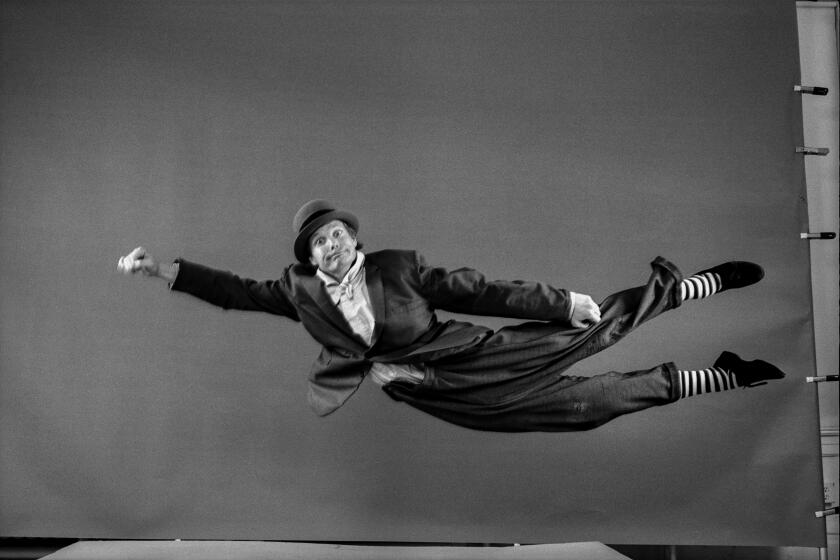A Word, Please: Back-to-school grammar tips for the students in your life

- Share via
Know someone who is heading back to school this fall? Here are some grammar tips I compiled for you, my dear (not-school-aged) reader, to pass along to that special student in your life.
Don’t write “it’s” in place of “its.” When you want to show possession, as in “The dog wagged its tail,” don’t use an apostrophe. Instead, use “it’s” only when you mean “it is” or “it has”: It’s raining. It’s been nice talking to you.
Don’t write “your” in place of “you’re.” If you want to tell someone “you are right,” the shorter form is “you’re right.” The one without an apostrophe, “your,” shows possession: Is that your phone?
Don’t write “who’s” when you mean “whose.” With an apostrophe, “who’s” means “who is” or “who has”: Who’s there? Who’s been eating my porridge? “Whose” deals with possession: Whose car is that?
Know the difference between “they’re,” “their” and “there.” Seeing a pattern here? Apostrophes cause a lot of confusion. “They’re” with an apostrophe means “they are”: They’re nice. “Their” shows possession: Their grades got better. “There” is a location, “Put it there,” or a way to say something exists, “There are a lot of people outside.”
Be careful with “let’s” and “lets.” “Let’s” is a contraction meaning “let us”: Let’s eat! Without an apostrophe, it’s a verb conjugated for a third-person subject: Troy lets his dog off the leash.
In the real world, writes grammar expert June Casagrande, adhering to style rules can be a waste of time.
Don’t use an apostrophe to make a plural. Words ending in vowels — like tuba, tsunami, boo, hello and bayou — look weird when you put an S at the end. But that’s how you make them plural: tubas, tsunamis, boos, hellos, bayous. That applies to proper names, too. Jane and Sam Newberry are the Newberrys. No apostrophe, unless you want to put one after the S to show joint possession, like “the Newberrys’ house.”
Use “could have” or “could’ve,” never “could of.” It may sound like your friend is saying “I could of eaten that whole pizza,” but he’s not. He’s saying, “I could’ve.”
Use “affect” as a verb and “effect” as a noun: Caffeine doesn’t affect me. That drug has bad side effects. (In rare cases, “effect” can be a verb meaning to bring something about: “to effect positive change.” Even rarer, “affect” can be a noun meaning mental state. But you’ll probably never need those.)
Use “led” when you want the past tense of “lead.” George Washington led his troops. Don’t get confused by the metal lead, which is pronounced like “led.”
Don’t double-space between sentences unless you think your teacher expects it. Professional publishing stopped double-spacing after periods a long time ago, but some educators didn’t get the memo. So use only one space after a period unless your teacher wants to see two.
“Between you and me” is proper English. Avoid “between you and I” in schoolwork.
Try dropping “Joe and” to choose between “Joe and I” and “Joe and me.” To know whether to write “Thanks for meeting with Joe and I” or “Thanks for meeting with Joe and me,” try the sentence without Joe. You’d never say, “Thanks for meeting with I.” So just as “Thanks for meeting with me” is correct, so is “Thanks for meeting with Joe and me.”
Don’t be afraid of grammar jargon in Spanish or French class. When you feel panic rising in your chest because a language teacher starts talking about indirect object pronouns or past participles, relax. You’re already a master. You use these things perfectly every day in English — for example “I sent him an email” uses the indirect object “him” and the direct object “an email.” Your teacher will give English translations so you’ll see instantly what these terms mean. You’ve got this!
Check a dictionary to learn plurals and past forms. Not sure if it’s “dreamed” or “dreamt”? Just look up “dream” in the dictionary and you’ll see both are correct. Want to know the plural of “species”? Look up the word and you’ll see the note: “plural: species.”
June Casagrande is the author of “The Best Punctuation Book, Period.” She can be reached at [email protected].
All the latest on Orange County from Orange County.
Get our free TimesOC newsletter.
You may occasionally receive promotional content from the Daily Pilot.




